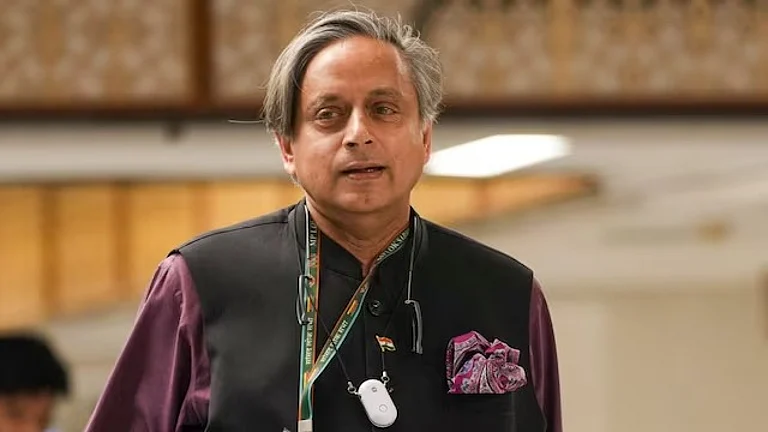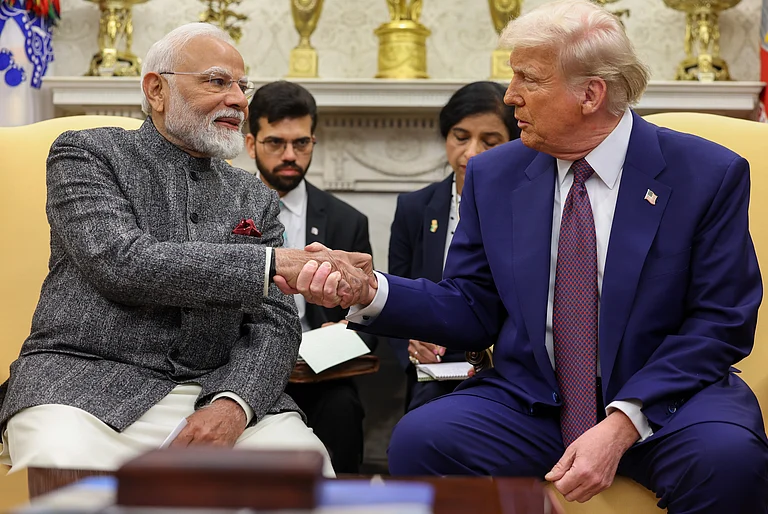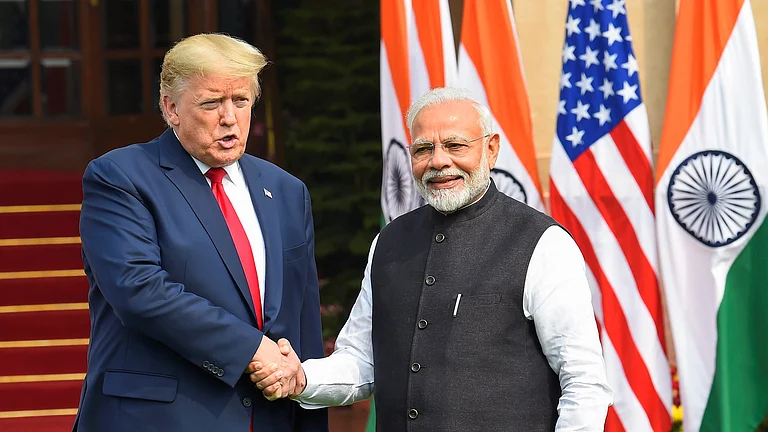Dr SC Jamir is a five-times Chief Minister of Nagaland. He is the lone surviving signatory of the 16-point Agreement of 1960 that led to the formation of Nagaland as the 16th state of the Union of India.
Jamir was also the Joint Secretary of the Naga People’s Convention, the negotiating body that came into a resolution with the then-Prime Minister Pandit Jawaharlal Nehru. The body was severely criticised for getting into an agreement with India at a time when separatist movement was at its peak. The separatists are waging a movement for an independent Nagalim.
Jamir is today considered as one of the architects of modern Nagaland. In an interview with Outlook, he talks about the on-going deadlocks in the Naga peace process, the way out and most importantly and what Nagas today want.
It has been 50 years since the plebiscite took place in Nagaland where 99.9 per cent of the Nagas voted for a sovereign Nagalim. Where does the mandate stand now?
I would like to be very candid as far as the Nagaland issue is concerned. Yes, in the beginning, the Naga people fought for a sovereign independent Nagaland, and in the course of the armed conflict, people suffered — unseen, unknown, unloved. But we live in a changing world — 1951 is no longer 2021. The world is different. The situation is different and so is the mindset of the younger generation.
The Naga people as well the people of Northeast want to be equal with the rest of the world. This is possible when the people are pragmatic and realistic. We are not living in a dream world. Changes are taking place not only in the outside world, but also in our own state. As an elderly person, I want to tell those people [fighting for an independent nation] that whatever you have sacrificed, we appreciate. But whatever possible under the present circumstances, whatever is drawn up, let’s be proud of that. Tell the Naga People that we have tried for so many years, but this is the only possible thing which is available today under the present political environment.
People will be happy because they also know what can be achieved and what cannot be achieved. We are not living in the past. Let us also make new history for Naga people.
The 2015 Framework Agreement does not mention a separate flag and constitution. Is NSCN (IM) deviating from the Agreement now?
The NSCN (IM) and the NNPGs [Naga National Political Groups] have been negotiating with the Government of India for more than 30 years on the agenda on Naga sovereignty. When they said they wanted to have dialogues outside India, the Government of India agreed. Talks were held in Geneva, Amsterdam, Bangkok and so forth at different places and different times.
Government of India obediently followed whatever the NSCN leadership said. They came back to Delhi and again started negotiating. They might have discussed threadbare, whether it is the issue of sovereignty, separate flag, constitution and so on. Naturally, it should not take more than 30 years to understand. They might have dissected all possible ways and arrived at a consensus. Ultimately, they decided to convert all their discussions and debate into writing. So in August 2015, they decided to sign the Framework Agreement in the presence of the Prime Minister, Home Minister and the National Security Adviser.
Before inking that accord, they might have gone through the draft prepared by them. Only after being convinced, they must have given their signature on the Framework Agreement. The Prime Minister and the Home Minister and the interlocutor shook hands with Muivah. When we shake hands, it indicates friendships. They also applauded by clapping hands. It indicates approval. At that point of time, they did not raise any demands of separate flags and Constitution. But you should remember that flags and constitutions are the attributes of a sovereign independent country. That why Mr [Angami Zapu] Phizo, during his struggle for sovereignty, never spoke about separate flag and constitution. He only spoke about free Naga homeland because then other things come automatically. But in this case of Framework Agreement, neither sovereignty and integration nor flags and constitution is mentioned. And it is absent from the Agreed Position as well.
Is the Government of India willing to discuss on the issue of separate flag and Constitution which is bringing a deadlock in peace process?
On 29th February, 2012, the NSCN (IM) had a mammoth meeting here in Nagaland. On that day, General Khole (Konyak) read out a written speech in which he clearly stated that an independent Naga nation is not possible because of international situations and that integration is not possible because of the policy of the Government of India and Myanmar. So they were true to their words in signing the agreement. That’s why neither sovereignty nor integration appeared in both Agreed Position and Framework Agreement.
At the same time when the Prime Minister was campaigning in Manipur during the election, he also categorically stated that the territory of Manipur shall not be disturbed and nothing such is mentioned in the Framework. The Government of India’s policy is very clear. It was clear to us in the 1960s when we said we want to have all the Naga area amalgamated into a single administrative unit. The reply of Government of India was that Nagaland, Meghalaya, Mizoram, Arunachal, Manipur — all these states were created because the Assam Assembly had passed an unanimous resolution in the house.
About the integration of the Naga areas, Manipur won’t let go even an inch of land, and so will Assam and Arunachal Pradesh. All these states are part and parcel of the Indian Union, belonging to the same family. So unless there is consensus among the states concerned, the Centre has nothing to do with this. They can’t force any of the states to give away lands for a Nagalim. That’s why integration was not there in the Framework Agreement.
What did you advice Prime Minister Narendra Modi and Home Minister Amit Shah when you met them in May?
The Home Minister and the Prime Minister both are very clear that they will not agree on separate flag and Constitution. In fact, the Naga people also want autonomy incorporated in the Constitution. My only suggestion is that whatever is decided so far should be put in action. You cannot keep lingering to the issue for so many decades. The Government of India wants the same.
Once the Naga issue is resolved, who would not want a peaceful North-eastern region in order to implement the Act East policy? All this infrastructure, making of roads, are for what? It is because we want to open our corridors towards the Southeast Asian nations. In order to do that, we want peace in the North-eastern part of the country.
What do you suggest to negotiating groups to further the peace process?
The 60 members of the Nagaland Assembly, who are the elected representatives of the Naga people, who carry the real legitimate mandate of the people, have come out in writing that both the groups NSCN (IM) and NNPGs should adhere to their agreements with the Government of India and solve the issue once and for all. NSCN(IM) and NNPGs, if they are really talking about the people, should also listen to the voice of the representatives of the people of Nagaland.
As a Naga, you should keep sanctity of what you have signed. You prove worthy to the Naga spirit of honesty and sincerity. As far as public is concerned, we are only interested in peace and normalcy in the state. We have suffered too long. Muivah should come out as a Naga leader in true spirit that whatever that NSCN (IM) has signed, it was signed with conviction, commitment and honesty. Why had not they raised the issue at the time of signing the Framework Agreement? That was an occasion when Prime Minister and Home Minister were there. After putting their signature and after so many years of that, they should not again raise the same issue and jeopardize the peace process.


























